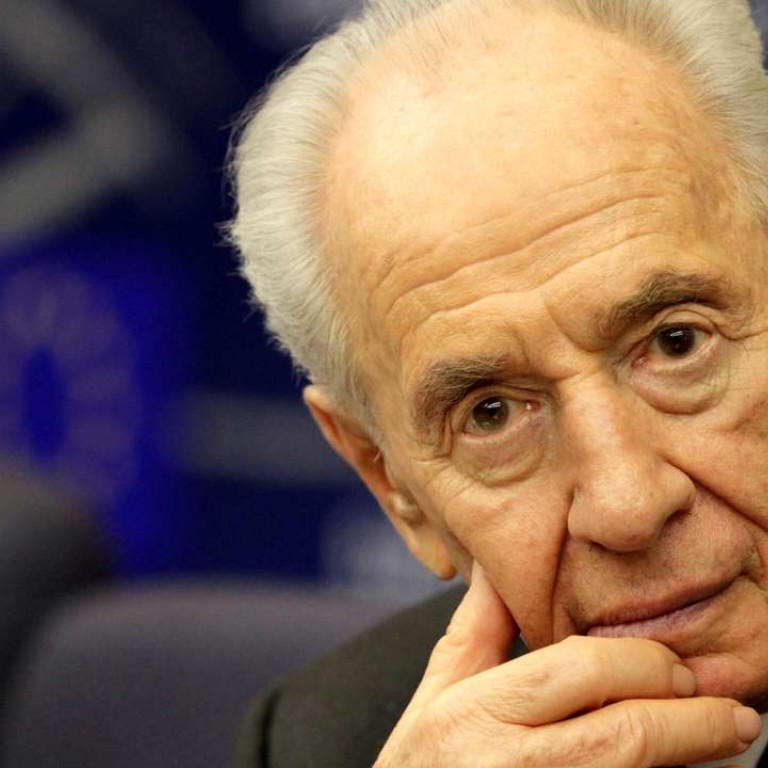
Shimon Peres – a dreamer who was also a realist
One of the founding fathers of modern Israel has died, but his vision for peace in a strife-torn region will surely live on
The Middle East has perhaps never been so strife-torn. Civil wars, religious hatred and political instability abound, rivals seemingly incapable of finding compromise and settling differences. The absence of a leader sufficiently objective, respected and visionary to reach out for peace makes the outlook grim. But Shimon Peres, the Israeli statesman who died on Wednesday at the age of 93, gives cause for hope.
Peres was one of modern Israel’s founding fathers and with his passing, the nation has lost the last of its political giants. For seven decades, he participated in almost all of the country’s significant events. Its security and defence were his making and he served in 12 cabinets, holding almost every senior portfolio, among them finance, defence and foreign affairs. Although he ended political life as president, his biggest disappointment was that while he served twice as prime minister, he was never elected to the position in his own right.
But while he started as a hawk dedicated to protecting the young nation against its enemies, he realised over time the need to adapt to circumstances. As Israel made peace first with Egypt and then Jordan, he believed it should then recognise the Palestinian Liberation Organisation and push for a two-state solution. While foreign minister, he was instrumental in secret talks in Oslo that in 1993 led to a breakthrough deal that resulted the following year in his winning the Nobel Peace Prize along with then Israeli prime minister Yitzhak Rabin and PLO leader Yasser Arafat. It was a controversial agreement for the Israeli right-wing and hardline Palestinians and as such, bound to fail.
Rabin was assassinated, peace talks broke down, there was a second Palestinian uprising in 2000, wars broke out in Lebanon and Gaza and hardline politician Benjamin Netanyahu was repeatedly elected prime minister. Yet, Peres never gave up hope for peace. From time to time, Western governments try to revive the process, but it remains elusive. Peres remained a divisive figure until being made president in 2007. But he used the role to try to unify Israelis, in the process becoming adored within the country and internationally respected.
He died without seeing his vision become reality, despite assuring all willing to listen that it would happen within his lifetime. But while some would contend he was a dreamer, he was surely a realist. Harmony for Israelis and Palestinians and throughout the Middle East is possible, but only when leaders imbued with his awareness and optimism are willing to give their all to the cause.

